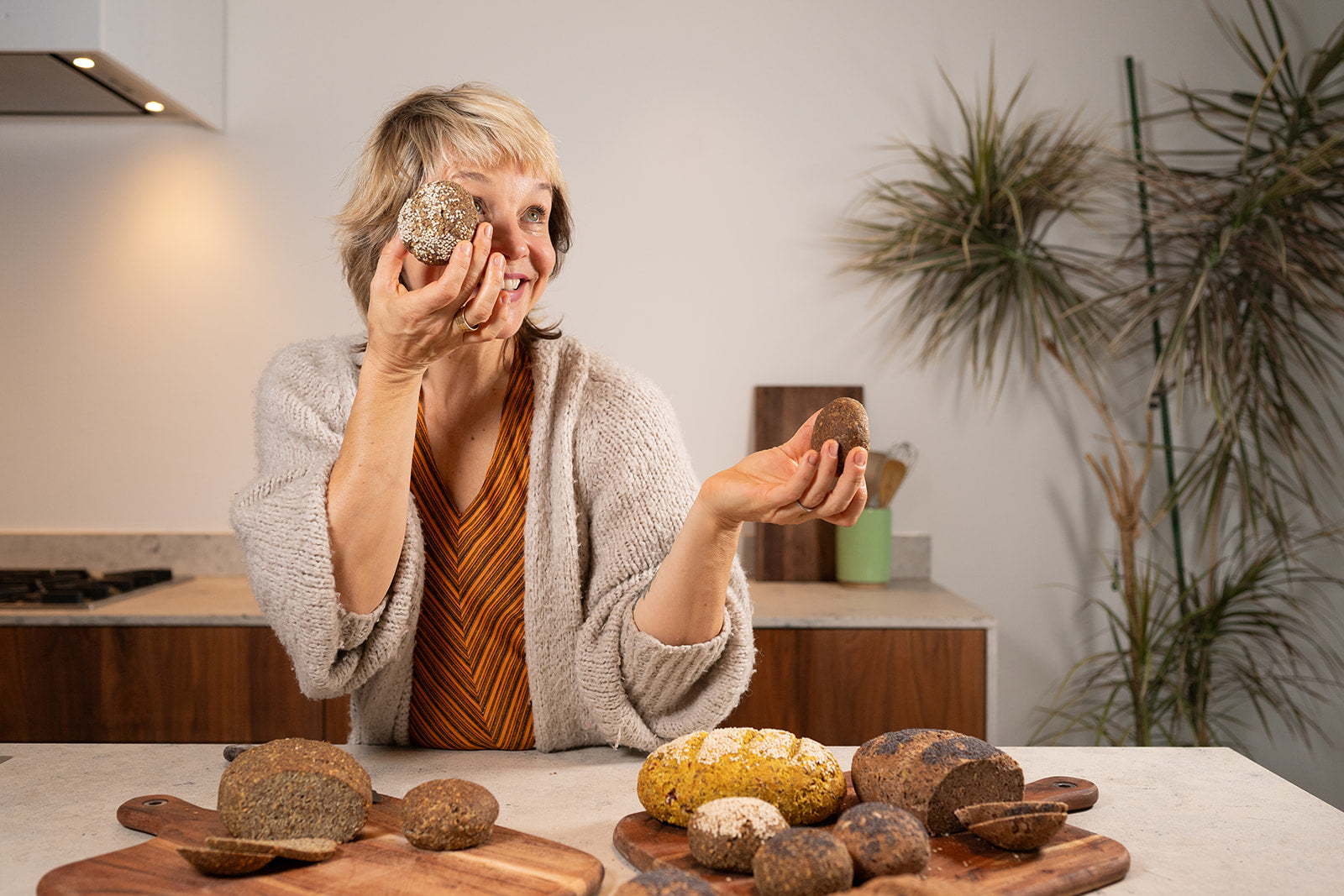Home
Inspiration
The Truth About Gluten-Free Bread: Why It's Not Always Healthy (and How to Make Better Choices)

The Truth About Gluten-Free Bread: Why It's Not Always Healthy (and How to Make Better Choices)
Gluten free does not automatically mean healthy
More and more people are choosing a gluten-free diet, whether for celiac disease, a gluten sensitivity, or simply to feel better. But those who think gluten-free bread is always a healthier choice are often disappointed. Many gluten-free breads from the supermarket are full of processed starches, sugars, and unhealthy fats. They often contain little fiber and protein, meaning they don't contribute to stable blood sugar levels or healthy gut flora.
Why is fiber so important?
A major problem with most gluten-free breads is the lack of fiber. Fiber plays a crucial role in your digestion and gut health. It feeds the good bacteria in your gut and helps keep your blood sugar levels stable. Without enough fiber, gluten-free breads can have the same impact on your body as white bread: fast carbohydrates that cause a blood sugar spike followed by an energy crash.
What makes a healthy gluten-free bread?
A truly healthy gluten-free bread is:
✔ Rich in fiber and proteins
✔ Free from processed starches and sugars
✔ Made from pure, natural ingredients
✔ Good for your intestinal health
At B-Ready, we have formulated our baking mixes to not only be gluten-free, but also to contribute to healthy intestinal flora and stable energy.
Our mixes do not contain any unnecessary additives, but superfoods and prebiotic fibres that support your body.
Because eating gluten-free shouldn't just be a compromise – it can actually be a step forward in your health!
👉 Discover here how our baking mixes support your health: B-Ready products
Share

